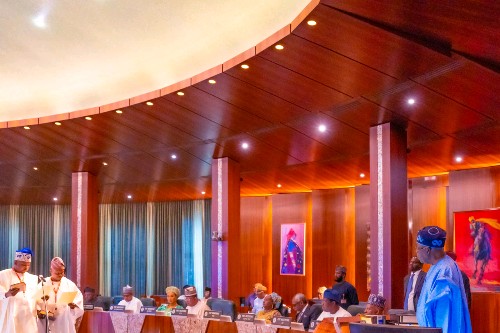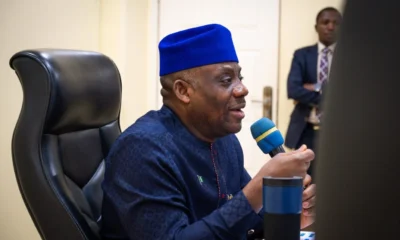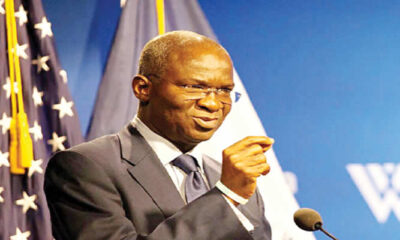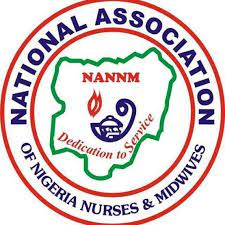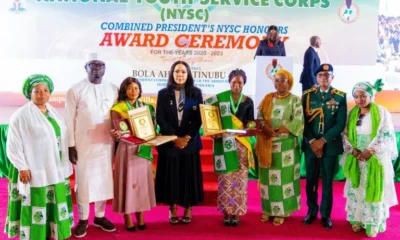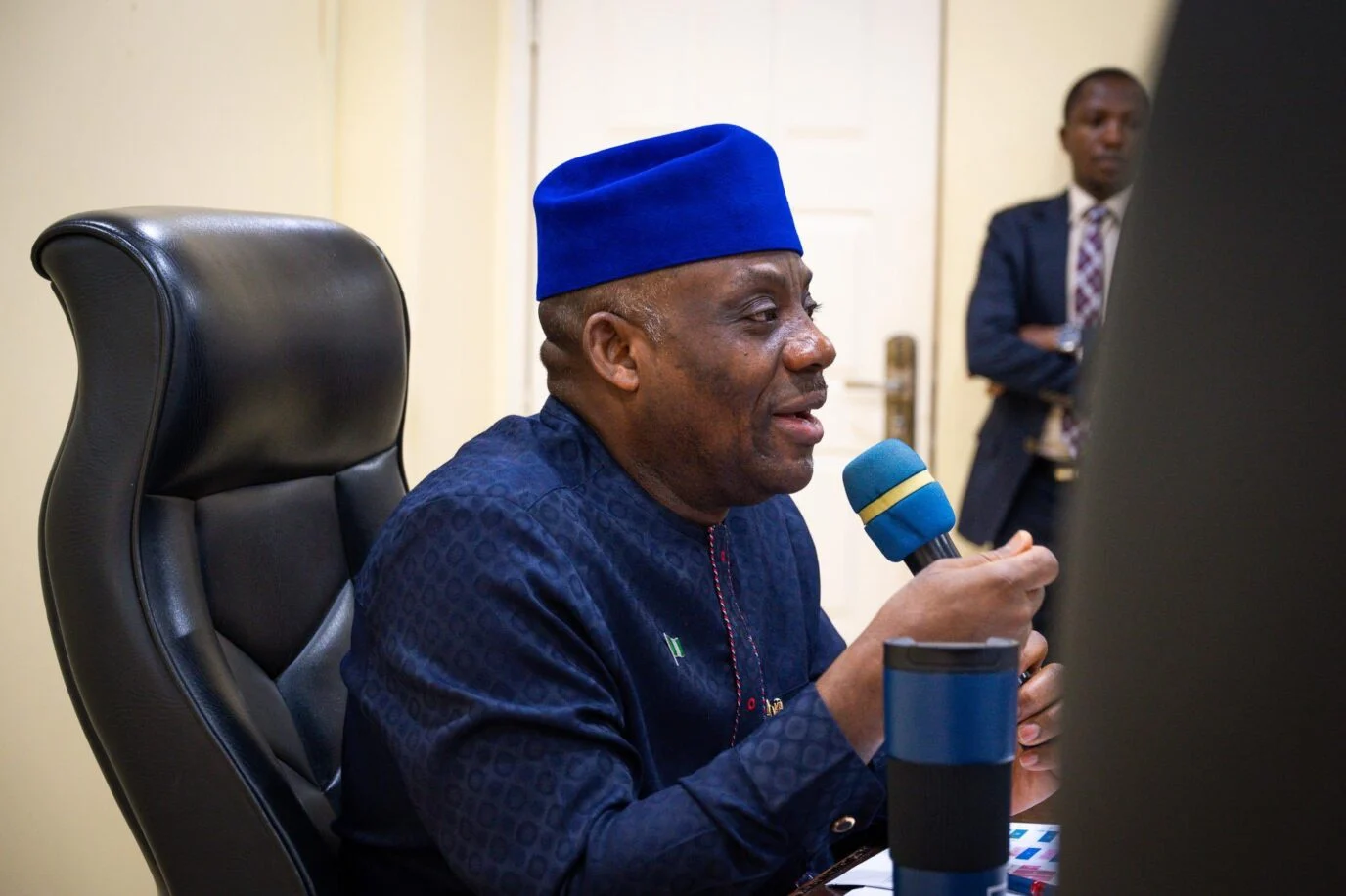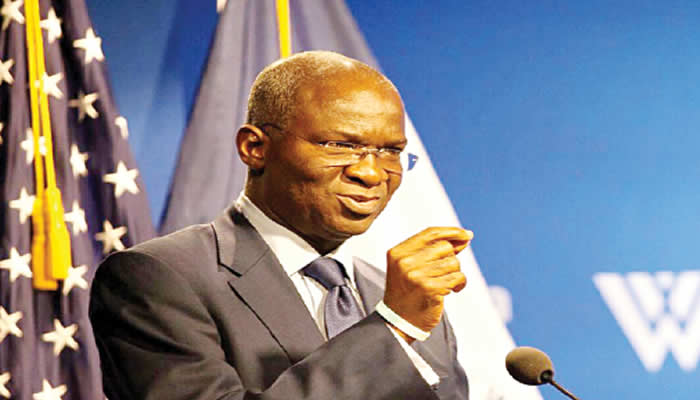Babatunde Fashola, the former Lagos State governor and ex-Minister of Works, has emphasized the need to safeguard the history of Lagos to prevent misrepresentation and uphold societal values, especially amid ongoing debates about the naming of streets in the state.
Fashola made this call on Tuesday during the official launch of “Discover Lagos State: A History Puzzle Book (Volume 1)” held at the Civic Centre in Victoria Island, Lagos.
At the event, Governor Babajide Sanwo-Olu, represented by Deputy Governor Dr Obafemi Hamzat, also stressed the need to document the state’s history. He commended the Lagos State Records and Archive Bureau for introducing the book at the right time.
Fashola referred to historical documents in the digital archives of the University of Glasgow, pointing out that the university’s faculty and students had contributed to the historical development of other nations, including through landmark references.
He said, “The archival heritage is a valuable testimony to the sociopolitical and economic development of humanity.
“For instance, the Glasgow University archives service gives fascinating insights into the influence that the university, its staff and students have had in the history and development of many countries, including Nigeria,” he said.
He further explained that records provide details about the first group of Nigerian students at the University of Glasgow, one of whom was Dr Issac Ladipo Oluwole, who enrolled in 1913 and graduated in 1918.
Quoting from the archives, Fashola noted, “Dr Ladipo Oluwole returned to Nigeria to become the first African medical officer of health in the Lagos colony.
“He pioneered school health services, with school inspection and vaccination of children in their schools, and started the first Nigerian school of hygiene at Yaba in Lagos in 1920. So that’s the Ladipo Oluwole. But the records were kept well in Glasgow, Scotland.
“So those of us who drive through streets such as Ladipo Oluwole Street in Ikeja will probably now understand and contextualise the contributions of such a man and why it was considered such a high honour to immortalise him by naming a street in his memory.
“But it is perhaps instructive that we are discussing street naming and street unnaming and I keep my gunpowder dry,” he added.
Fashola continued, “Today I reiterate those words about street naming and Dr Oluwole and with a greater conviction to reinforce my message that the preservation of our history and the documentation of our progress should be taken seriously.”
He pointed out that LASRAB’s mission extends beyond publishing educational materials and is aimed at establishing a reliable and complete archive of Lagos State’s heritage.
He added, “To make this a reality, LASRAB must be adequately resourced. Mr Governor, LASRAB must be well-funded.”
Hamzat, in his remarks, expressed pleasure at the release of the history puzzle book, describing it as a creative blend of education, innovation, and cultural retention.
He said, “This project is an innovative learning tool designed to stimulate young minds, especially.
“It will also promote curiosity, deepen our pride as Lagosians and our collective understanding of the history and heritage of our dear state.”
Hamzat praised Fashola, recalling that his administration initiated the establishment of LASRAB.
He said, “I recall very clearly that he wrote an executive order directing that all documentation, when we build schools, when we build bridges and anything, we just have five copies, one in the Ministry of Science and Technology and one in LASRAB, and all over.
“This foundational act was not merely administrative. It was an intentional effort to institutionalise, preserve, document, and disseminate Lagos’s narrative for posterity.”
He further stated, “It is important that we don’t only understand ourselves, but we must understand our history so we don’t lose ourselves.
“This book is a creative method of crafting historical consciousness that informs while it also entertains. That way, we don’t distort our history and we don’t misunderstand our being.”

 BIG STORY2 days ago
BIG STORY2 days ago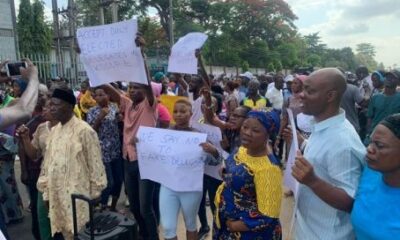
 BIG STORY2 days ago
BIG STORY2 days ago
 BIG STORY2 days ago
BIG STORY2 days ago
 BIG STORY2 days ago
BIG STORY2 days ago
 BIG STORY2 days ago
BIG STORY2 days ago
 BIG STORY2 days ago
BIG STORY2 days ago
 BIG STORY1 day ago
BIG STORY1 day ago
 BIG STORY18 hours ago
BIG STORY18 hours ago




